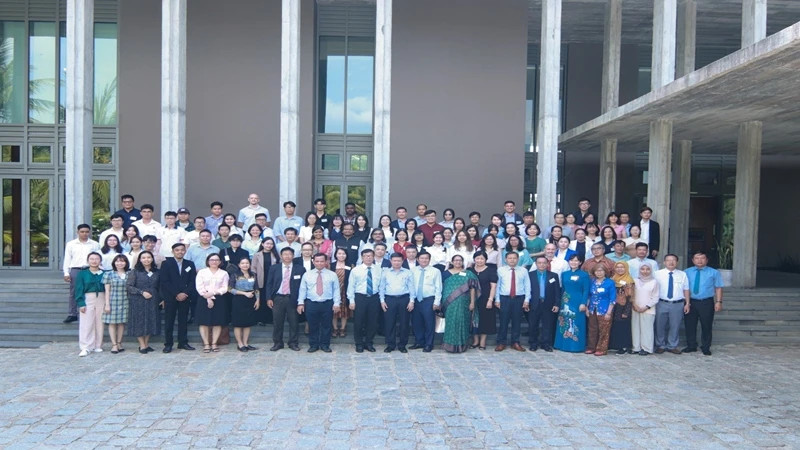Co-organised by the 'Rencontres du Vietnam' (Meeting Vietnam) and the ICISE, the conference aims to provide an interdisciplinary platform for all delegates to present research results, share experiences, and discuss the most recent innovations, trends and concerns, as well as practical challenges encountered and solutions adopted in the field of medicinal plant biology and advanced innovation in natural products.
This event is also a chance for all delegates to maintain the existing and initiate new multidisciplinary collaborative networks.
The conference brings together about 120 individuals from 13 countries, including foreign speakers, professors and scientists from many prestigious universities worldwide. These include Dr Christopher Scarlett, Newcastle University (Australia), Dr Gontier Eric, Picardie Jules Verne University, Amiens (France) and Professor Ikuro Abe, University of Tokyo.
At the conference, there will be nearly 50 reports at the plenary session and parallel sessions. The conference focuses on three major topics, including medicinal plants and other valuable natural resources, advances in the discovery of natural products and the cultivation, production and application of medicinal plants and their biologically active compounds.
The event runs until April 17.
According to the World Health Organization (WHO), over 80% of the global population uses medicinal plants for health care and protection. There is an increasing trend of interest in the use of medicinal plants and natural compounds, and this helps to drive medical innovation towards health maintenance and disease prevention, which is becoming more and more important globally.
Vietnam is located in Southeast Asia and belongs to the tropical zone with different climatic and geographical features in various regions, with congruously natural conditions for developing medicinal plants. Among the 12,000 species of plants in Vietnam, approximately 4,000 species have been used as medicinal plants in the field of ethno-medicine.
Therefore, Vietnam is considered one of 15 countries in the world included in the map of medicinal plants because of their diverse plant and animal origin with many specific medicinal plants, high use value and economic value.
















